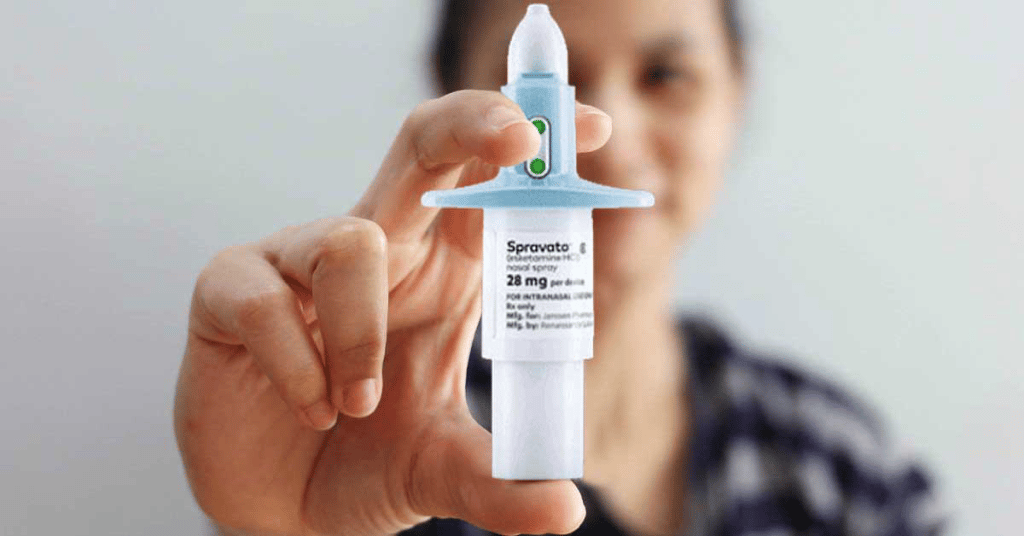The cause of death of ‘Friends’ star Matthew Perry, who died in October at age 54, has been ruled an accident related to the consumption of ketamine — a dissociative drug often used off-label to treat depression.
Ketamine has recently gained attention in the mental health field, particularly as a potential treatment for depression. But just how safe is it? According to the Los Angeles County Medical Examiner’s Office, “acute effects of ketamine,” were ruled as the cause of death in actor Matthew Perry’s October drowning in his Los Angeles home. Perry was recovering from substance abuse and suffered from depression.Perry was “reported to be receiving ketamine infusion therapy for depression and anxiety,” says the autopsy report, made public today. “At the high levels of ketamine found in his postmortem blood specimens, the main lethal effects would be from both cardiovascular overstimulation and respiratory depression.”
Ketamine as a treatment for depression
Ketamine has long been an FDA-approved anesthetic, valued for its safety and effectiveness in surgical settings. Its use extends beyond traditional anesthesia, however, as it’s increasingly being considered for treatment-resistant depression (TRD). This shift in application marks a significant departure from its original medical role.

Unlike traditional antidepressants that primarily target neurotransmitters like serotonin, ketamine operates differently when used to bring relief from depression. It’s believed to foster new connections between brain cells, potentially reversing the detrimental effects of chronic stress and depression on the brain. This novel mechanism of action has positioned ketamine as a promising option for those who haven’t responded to conventional treatments. As many as 30 percent of patients suffering from depression are classified as having treatment-resistant depression — meaning two or more treatments, typically pharmaceuticals, fail to bring relief.
The use of ketamine for TRD represents a significant development in mental health treatment. Its rapid action contrasts sharply with the often slow-acting traditional antidepressants. Clinical trials and studies have shown encouraging results, with ketamine providing relief from depressive symptoms similar to that of other psychedelics like psilocybin and MDMA, with users reporting benefits within hours or days, a benefit lasting for varying durations. However, questions about the long-term efficacy and safety of ketamine remain, with ongoing research needed to fully understand its impact.
Ketamine risks
Also still in question are the risks associated with ketamine use. Ketamine, despite its potential therapeutic benefits, carries several risks and side effects, particularly when used improperly or in non-medical contexts. Its safety profile in clinical settings for depression treatment is generally considered favorable, but concerns arise regarding its use outside these controlled environments. The long-term impact of ketamine use, particularly in high doses or frequent use, is not fully understood and remains a concern.
While ketamine can often be used to treat addiction, there is a potential for misuse and psychological addiction. Ketamine can have a strong impact on perception and can result in hallucinations, altered states of consciousness, and dissociation. In some cases, it can exacerbate mental health conditions. There is some research that says ketamine can impair cognitive function and memory with repeated and prolonged use. Likewise, some users may develop a tolerance, requiring higher doses to achieve the desired outcome and thus increasing the risk of side effects.

There are physical risks, too — some users can experience cystitis affecting the urinary tract and bladder. There are possible contraindications with certain medications that could be life-threatening. And because of ketamine’s strong effects, users can be at greater risk for injuries such as falling.
According to Gerard Sanacora, MD, PhD, who has been involved in all aspects of ketamine research for more than 25 years, ketamine therapy is effective, but comes with risks. “This is my biggest concern about ketamine treatment: It is critical for it to be a part of a comprehensive mental health plan, not in isolation,” he said in an interview with Yale School of Medicine.
“But we’re in this very unique situation where nobody can stop people from using racemic ketamine, which contains S-ketamine, any way they want,” Sanacora says. “This is because the FDA approved racemic ketamine 60 years ago as an anesthetic and didn’t put any restrictions on it. So when the FDA introduced strict S-ketamine regulations to make sure it was being used safely and responsibly, there was this big loophole that people get around by simply not using S-ketamine. They just use the older racemic ketamine, which has no safety requirements associated with it.”
Sanacora says there are “real risks” with any type of ketamine though. “It is an anesthetic. If you get enough of it, you will become completely sedated — that’s always a risk associated with it.” He says it has other physiologic effects on heart rate and blood pressure that can be pronounced — or deadly, as with Perry. “For most people, this is not a major issue. But if you are somebody that has an elevated risk of a cardiovascular event, there can be very serious consequences. For instance, if somebody has significant coronary artery disease or has an aneurysm, ketamine could kill them on the spot.”
Psychological risks can also become serious with ketamine use, says Sacanora. “There are large amounts of data suggesting that your ability to make rational, correct decisions is completely disrupted when you take ketamine as long as it’s in your system.” He says this is typically about an hour and a half to two hours.

It can also dramatically alter perceptions, says Sacanora. “People can hear things differently, see things differently, feel things differently — this can be really scary to some people and cause them to act differently than they would without the drug in their system. The physiological and psychological reasons are the main reason the FDA declared the drug safe only in a health care facility under supervision.”
Is ketamine safe?
While the benefits continue to outweigh the risks when used under the supervision of a trained clinician or physician, Sacanora underscores that ketamine is not a miracle cure. “This is not a treatment to be given in isolation. All of the studies presented for consideration of FDA-approval were done with very close psychiatric follow-up,” he says.
“It is incredibly naïve and uninformed to think ketamine alone will make your depression go away. It’s a part of a treatment plan, not the treatment plan. It should be given as part of an overall treatment plan with a mental health professional.” According to Sacanora, the FDA approval for ketamine also states that it has to be used along with an oral anti-depressant.
“It’s not even approved to be used alone,” he says. “These ketamine clinics that provide the treatment without close follow-up of some type being provided by a mental health professional, in my mind, are a very dangerous thing, because they aren’t providing the comprehensive mental health care that these patients need.”
Related on Ethos:


